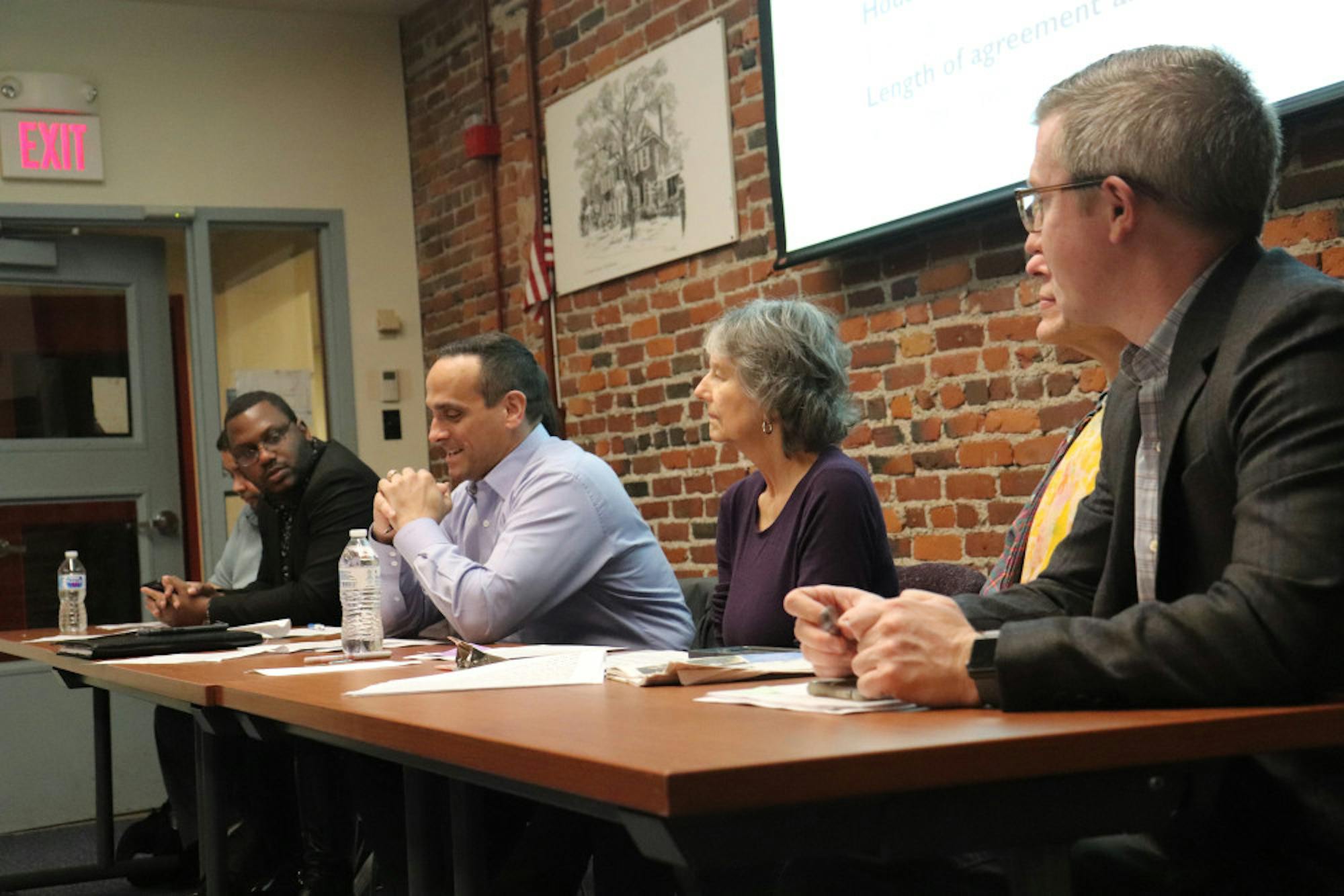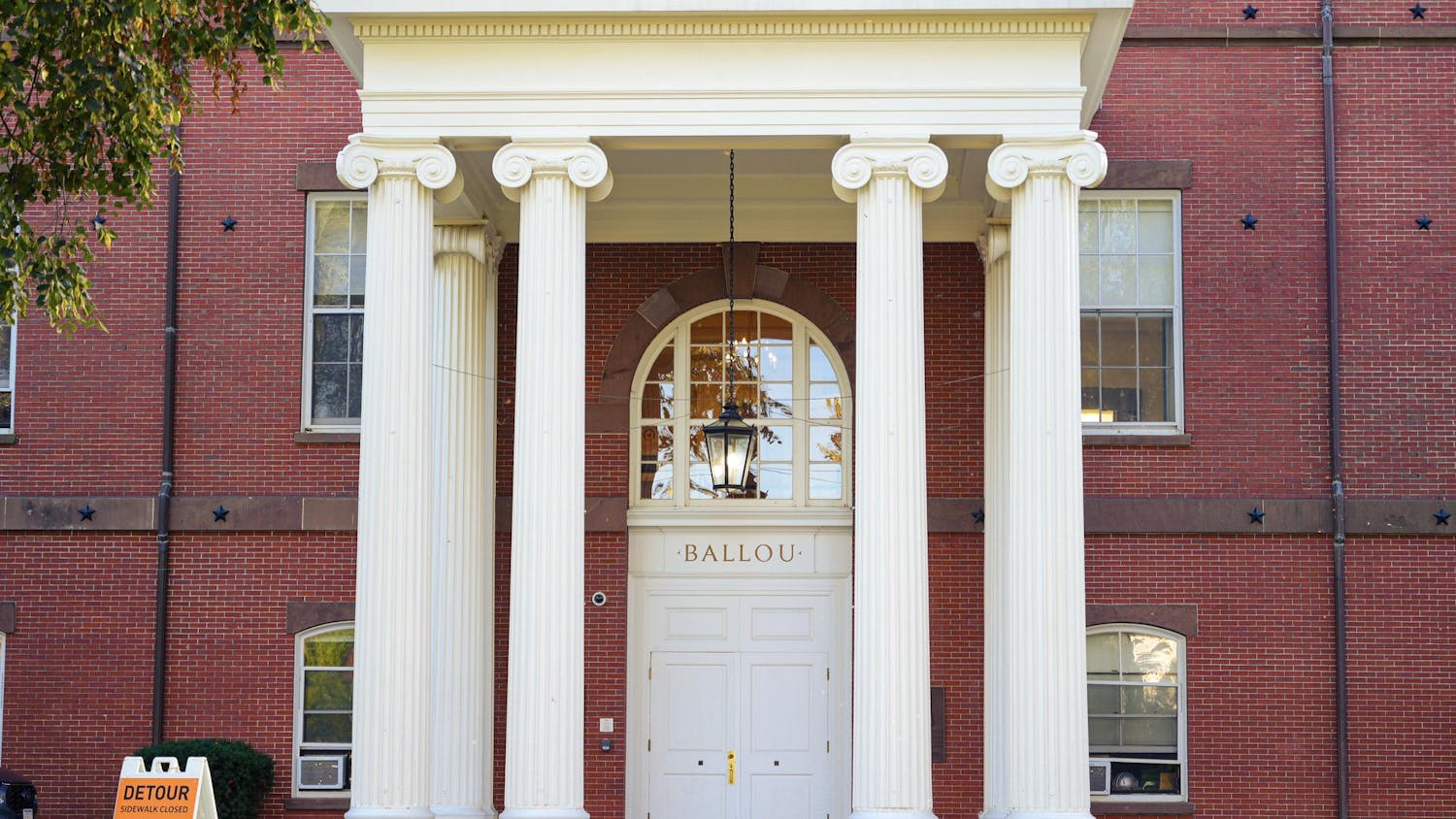Somerville Mayor Joe Curtatone said that negotiations with Tufts over a new payment in lieu of taxes (PILOT) agreement have reached an impasse despite some points of progress in the year-long talks.
At a community meeting held last Thursday evening in the Tufts Administration Building, the mayor and the other members of the city’s PILOT negotiation team were blunt in their appraisal of the talks.
“We did not come to an agreement that we feel is acceptable to bring back to the community, and we have reached an impasse, though we had made some, albeit incremental, progress,” Curtatone said.
Tufts Director of Community and Government Relations Rocco DiRico, who has been leading Tufts' negotiating team, reaffirmed the university's dedication to the talks in an email to the Daily.
"The university is a committed partner to our host communities and we strive at all times to be the best neighbor possible," he wrote.
The meeting came after the city submitted its final partnership agreement to Tufts on Feb. 11 and the university presented its amendments and additions to the proposal on Feb. 28.
PILOTs are voluntary payments which untaxed nonprofits pay to their host communities to compensate them for some of the property taxes they would pay were they not tax-exempt.
Were Tufts a tax-liable entity, it would have paid roughly $6.7 million in property taxes to the City of Somerville in fiscal year 2019, according to numbers provided by Ward 7 City CouncilorKatjana Ballantyne during the meeting. Instead, the university paid $450,000: roughly 7% of the estimated full bill. This was an increase from fiscal years 2013 to 2018, when the university was paying even less, handing in $275,000 annually.
Had Tufts paid its full estimated property tax bill in 2018, that payment would have represented around 2.5% of the city’s total revenue.
At the meeting, Ballantyne announced that Tufts has conditionally offered to maintain its annual payment at $450,000 a year increased by 2.5% every year to account for inflation. This plan is projected to bring in a nominal sum of just above $5 million for the city over the decade.
The negotiating committee has not accepted the offer and is currently in discussion over the proposal and soliciting community input, Ballantyne said.
In a break with previous agreements, the committee is also seeking to include provisions in the agreement which govern off-campus housing, a contentious issue in Tufts' surrounding community.
About 65% of Tufts undergraduates live on campus, leaving nearly 2,000 to find housing in the surrounding Somerville and Medford neighborhoods.
Edward Beuchert, who sits on the West Somerville Neighborhood Association Board of Directors, said that overcrowding at Tufts pushes rents up and forces residents out. The committee proposed aggressive targets to the university to tackle the housing crunch, including commitments to house all undergraduates on campus by 2030, and a yearly reduction in the number of undergraduates in off-campus housing.
The university refused both provisions, and has maintained in negotiations that it does not have the money to construct a new dormitory, Beuchert said. Instead, the university proposed a commitment that it would “continue to add beds for undergraduate students."
The mayor expressed disappointment that the committee has not been able to get the university to agree to any “hard goals” on housing.
“I didn’t think that goal was too hard; we don’t want to set them up for failure or push them out,” he said. “But suffice to say we’re not close on housing.”
DiRico, the Tufts spokesman, disputed the committee's claims that Tufts has done little to curb the housing shortage. The university has added 437 beds on campus, the equivalent of two dorms, in the last three years, through what the university has branded "bed optimization" and the conversion of wood-frame houses in the Community Housing project, DiRico wrote.
"While we cannot commit to housing 100% of our students on campus at this time, we will be using the lessons learned these past few years to continue to add more beds on campus in the years ahead," he wrote.
The university also refused a proposal to create a housing joint working group of community members and three Tufts representatives, including a member of the Tufts University Board of Trustees' Administration and Finance Committee, that would meet as frequently as necessary.
The university responded with a proposal calling for a community advisory group that would meet quarterly and would not include a trustee.
Tufts argues that it gives the community far more than the PILOT payment alone would suggest in the form of non-monetary benefits like field access and economic impact.
Some of the non-monetary benefits Tufts provides are educational services for Somerville Public Schools (SPS) students. In the previous agreement, Tufts waived the application fee for Somerville High School students and the Dean of Admissions read each of their applications personally. The university also organized a series of college readiness programs for students and paid for test prep.
The negotiating committee has worked to enhance the university’s contribution to SPS.
Andre Green, the Ward 4 member of the Somerville School Committee, said that the city and the university had already reached agreement on a number of points, including the expansion of existing college-readiness efforts and placing more Tufts students as tutors in SPS.
The university also agreed to give Somerville residents 80% off the price of auditing courses at Tufts, which was higher than the rate proposed by the committee.
However, the two sides have stumbled over the target acceptance rate for Somerville High School students.
Green explained that Tufts provided data showing that the acceptance rate for SHS students from 2015 to 2019 was 25%, 10 points higher than the national admissions rate for Tufts. The committee proposed that the university maintain that 10-point difference above the national average over a five-year period.
The university rejected that proposal, pledging only to continue to report acceptance data to the city.
“Our position is that keeping ... the same shouldn’t be difficult especially with all the things we’re doing to increase the pipeline of students into Tufts,” Green said. “Tufts is very leery of making any serious commitments there.”
DiRico emphasized that the two sides have found agreement on 22 education provisions, but that the university is unable to agree to the acceptance rate commitment because Tufts admissions decisions are determined by a "holistic and highly selective process."
Green also said that differences remain as to how many SHS students will be allowed dual enrollment at Tufts each year. The university proposed three, but the committee would like to see more.
Residents at the meeting were largely hostile to the university's conduct in the negotiations.
Marianne Walles, a candidate for mayor of Somerville in 2019 who made PILOT a central part of her campaign, accused Tufts of being a bad neighbor, a common refrain on Thursday evening.
“You want all the advantages of being in Somerville and Medford and you want to displace our families, but you don’t want to be responsible in any way shape or form to the community,” she said, addressing the university leadership directly.
Other residents told the mayor and the other members of the committee to take a more public stand against Tufts, while one even suggested selling the Somerville side of campus to Medford — only half-jokingly.
The mayor said that the committee is focused on coming to an agreement in the next couple of weeks and will soon be back in talks with Tufts.
"We didn’t walk away from the table because we reached an impasse. We’re having to go back and pound away at these things and report back to you in a short time,” Curtatone said.
Patrick Milsewski contributed reporting to this article.
Somerville, Tufts deadlocked over tax payment

A Somerville community meeting is held at the Tufts University Administration Building on March 5.





